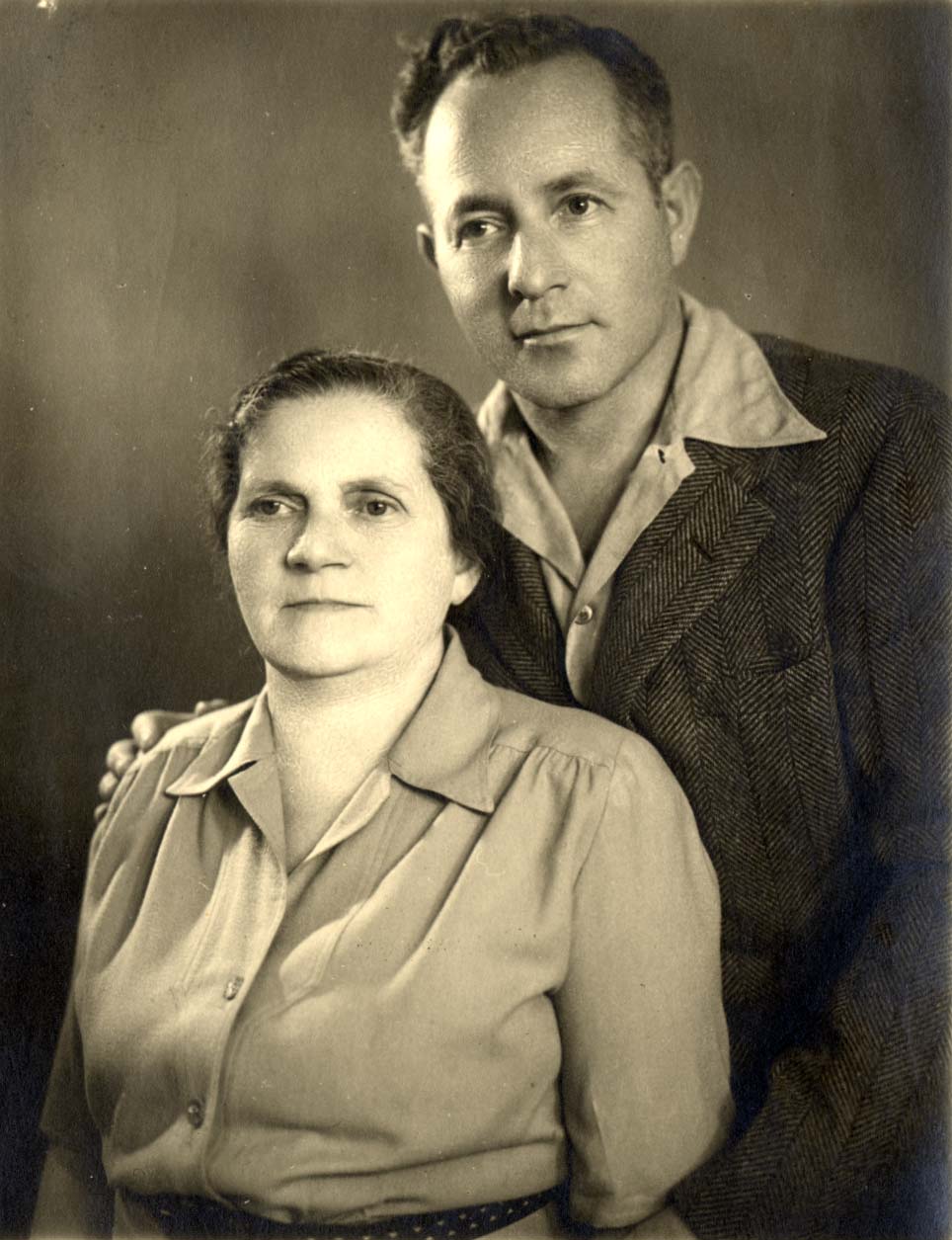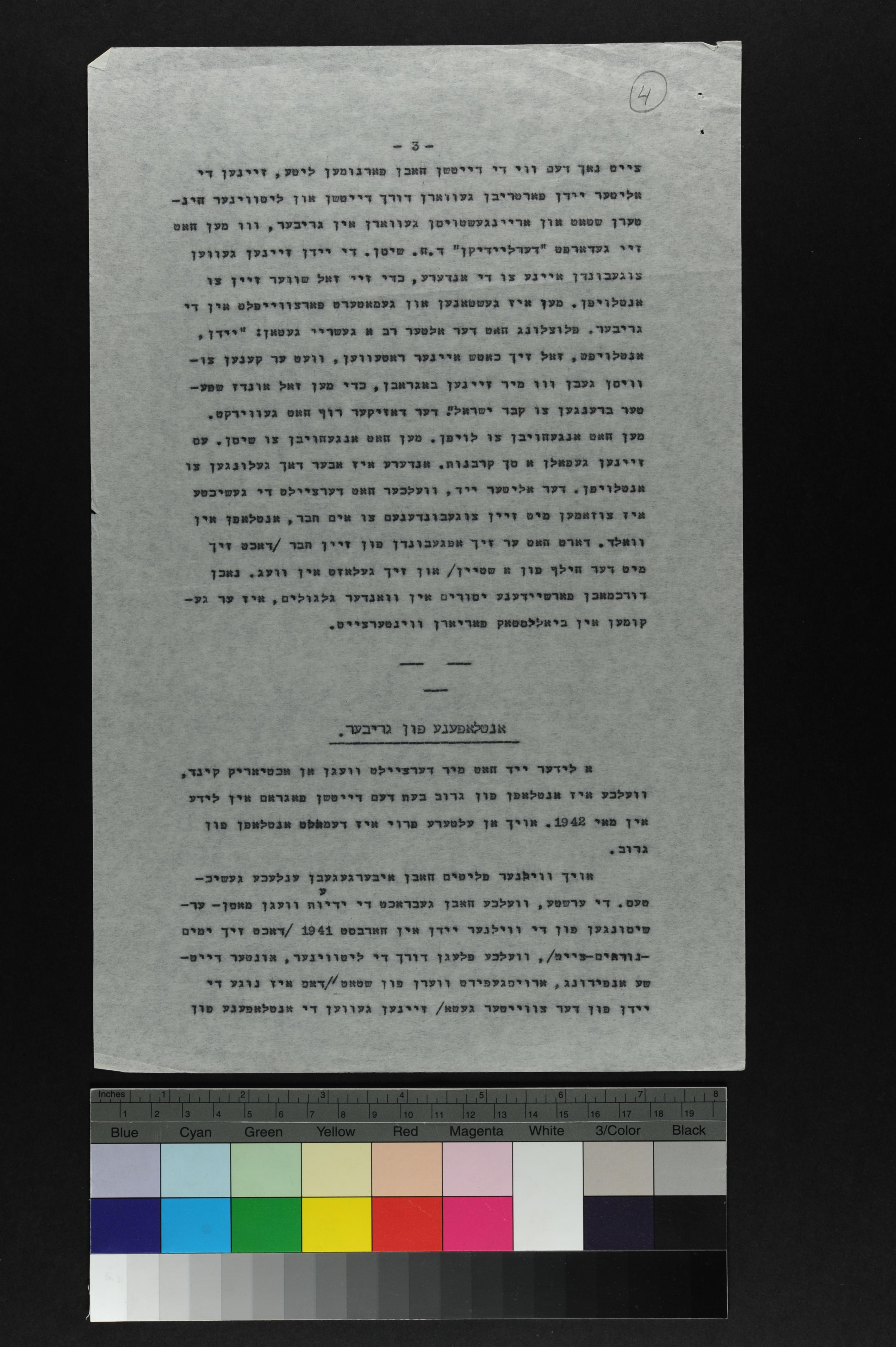Vidzgiris Forest Related Communities
# Follow us
Languages
English
עברית
Русский
español
Deutsch
Français
ABOUT THE HOLOCAUST
RESEARCH & COLLECTIONS
COMMEMORATION
EDUCATION & E-LEARNING
MUSEUMS & EXHIBITIONS
RIGHTEOUS

Murder story of Alytus Jews in the Vidzgiris Forest
Murder Site
Vidzgiris Forest
Lithuania
On September 7, 1941, following an order issued by Einsatzkommando 3a, German police units assisted by armed Lithuanian nationalists deported 1,279 Jews from the Alytus ghetto to the large prison adjacent to the barracks on the west side of the town. They were held there for three days without food or water. Members of the killing squads then transferred the Jewish captives by truck to pits, dug several days earlier by Soviet prisoners of war, and shot them. The Jewish victims were buried in nine pits in the Vidzgiris Forest, 1.5 kilometers from the bridge, three kilometers from Alytus, and two kilometers from the barracks. Local residents, some of whom participated in the murders, testified that during the shootings, several victims displayed individual acts of resistance. The few that managed to escape hid among solicitous Lithuanians. Various historical committees determined that tens of thousands of local Jews, as well as Jews from foreign countries, were murdered in the Vidzgiris Forest.
Related Resources
Written Testimonies
German Reports / Romanian Reports
Leib Kunikhovski, who was born in 1910 in Alytus and lived there during the war years, testified:
Late Friday night, on September 7, 1941, armed Lithuanian murderers drove all the Jews – men, women, the elderly and the sick, small children and adults – out of the houses and into the prison. The weeping and heartrending shrieks of the adults, and even more of the small children, made the dark night tremble throughout the area surrounding the ghetto.
As the Jews were driven into the prison, they were forced to pass rows of Lithuanian murderers, who beat each of them with sticks and iron bars.
For several days, the Jews were kept in the prison without food or water. They were brutally beaten day and night. The weeping of women and children could be heard outside the walls of the prison. The Lithuanian murderers were “ripening” the Jews so they would “die without resistance.” On the last day, dense, choking smoke could be seen in the prison. The stink was carried far from the prison. People said that the smoke came from barrels of pitch that had been ignited in the corridors, in order to frighten or hurt the helpless victims. Thus the Jews were tortured in the prison for three days and nights, until September 9 and 10, 1941.
On the morning of September 9, the tormented Jews were taken in trucks from the prison to the waiting graves. The Jews were forced to lie down one on top of the other. The weaker ones were thrown into the trucks half dead. Small children were thrown into the trucks like logs, right on top of the half dead or fainting adults. The operation of taking the Jews from the prison and shooting them lasted two days.
YVA O.71 / 127
Testimony of a Jew, who escaped from the murder site in Alytus:
I recently heard the story (tale) of the Jews of Alytus (a town in Lithuania). During the murder operations carried out in Lithuania, a short while after the Germans had occupied Lithuania, Alytus’ Jews were driven by the Germans and Lithuanians to the outskirts of the town, and then pushed into graves for liquidation, i.e., shot to death. The Jews were bound to each other so it would be difficult to escape. When they were standing tortured and desperate in the graves, the old Rabbi suddenly shouted: “Jews, run away! Let someone be saved to inform where we were buried, so that we will later receive a Jewish burial!” His call was effective. People began running away and the shootings began. Many victims fell, though others managed to escape. The Alytus Jew who told me this story fled to the woods, along with a friend to whom he had been bound. There he managed to untie himself from his friend, using a stone, I suppose, and then moved forward. After undergoing various sufferings and wanderings, he arrived at Bialystok last winter.
ZIH, WARSAW 12/133 copy YVA M.11 / 34
Vidzgiris Forest
forest
Murder Site
Lithuania
54.403;23.959
Videos
Riva Bogomolnaja was born in 1920 in Butrimonys, Alytus County, Lithuania. (Interview in Russian)
USC SHOAH FOUNDATION, 6396 copy YVA O.93 / 6396


